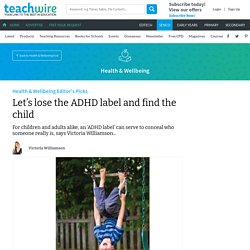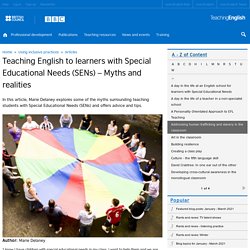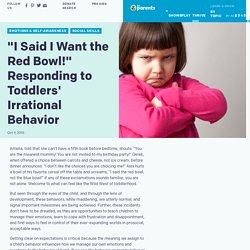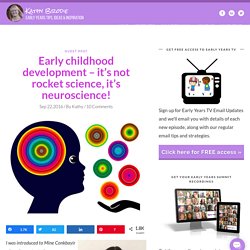

Neufeld. Guiding Principles for Use of Technology with Early Learners. The thoughtful use of technology by parents and early educators can engage children in key skills such as play, self-expression, and computational thinking which will support later success across all academic disciplines and help maintain young children’s natural curiosity. The Departments recognize that families and early educators have many different options for using technology with early learners. The Departments believe that guidance needs to reflect the reality that families and early educators have access to apps, digital books, games, video chatting software, and a multitude of other interactive technologies that can be used with young children.
Even as new technologies emerge, the Departments believe that these principles apply, though guidance may evolve as more research on this topic is published. How can parents and teachers best educate young children? What principles can both teachers and parents bring to the education of very young children? Gillian Craig, who was part of the Learning Time with Shaun and Timmy writing team, explains.
As teachers and parents, we follow certain principles in our roles. Often though, these principles overlap and all we need to do is recognise and reinforce these areas. Ask (the right) questions When my daughter came out of her class one day shortly after her course started, I asked her, 'What did you do in class today? '. Carol Dweck: The power of believing that you can improve. A longitudinal investigation of the role of quantity and quality of child-directed speech in vocabulary development. The Power (and Peril) of Praising Your Kids. What do we make of a boy like Thomas?

Thomas (his middle name) is a fifth-grader at the highly competitive P.S. 334, the Anderson School on West 84th. Slim as they get, Thomas recently had his long sandy-blond hair cut short to look like the new James Bond (he took a photo of Daniel Craig to the barber). Unlike Bond, he prefers a uniform of cargo pants and a T-shirt emblazoned with a photo of one of his heroes: Frank Zappa. Thomas hangs out with five friends from the Anderson School. They are “the smart kids.” Since Thomas could walk, he has heard constantly that he’s smart. But as Thomas has progressed through school, this self-awareness that he’s smart hasn’t always translated into fearless confidence when attacking his schoolwork. For instance, in the early grades, Thomas wasn’t very good at spelling, so he simply demurred from spelling out loud. Thomas is not alone. Let’s lose the ADHD label and find the child.
When I trained as a primary school teacher 15 years ago, these were some of the words used to describe children with ADHD: ‘Difficult.’

‘Challenging.’ ‘Disruptive.’ There were others, whispered by harassed-looking teachers in the staffroom or concerned parents at the school gates, but none seemed to be positive. When I got my first ‘real’ class to teach, and saw that some of the children came with the dreaded ‘ADHD’ label attached, I approached the new term with butterflies the size of dragons in my stomach. Teaching English to learners with Special Educational Needs (SENs) – Myths and realities.
‘I know I have children with special educational needs in my class, I want to help them and we are supposed to promote inclusion, but I really am not sure how to do this’ Vera, primary teacher from Spain.

Teaching large classes. This article suggests ways to help discipline, to use group work and to cope with limited resources. What to consider when teaching English in large classes. How many students do you teach? Do you feel that your classes are too big? Author and education consultant Jason Anderson looks at the issues and offers some potential solutions. For many of us, our classes are larger than we would like them to be. Schema and Fairies. Schemas are one of those things that divide practitioners, like fairies at the bottom of the garden.
You either believe in them and are in absolute awe at how amazing they are, or you just don’t believe they exist. It’s really interesting when you discuss this with people and it’s extra exciting when a ‘non-believer’ suddenly says “That describes my key child exactly!!” But first of all, let’s explore what a schema is. Does my toddler have a short attention span because she won’t sit still for a story? A: It is perfectly normal for toddlers to not sit still very long—period.

Most don’t like to stay in one place for long now that they can explore in so many new ways—by running, jumping, and climbing. So, an adult’s idea of snuggling on the couch to hear a story may not be the same idea a toddler has for story-time. You may only be able to read or talk about a few pages in a book at a time. Here are some ways to engage active children in reading: "I Said I Want the Red Bowl!" Responding to… Amelia, told that she can’t have a fifth book before bedtime, shouts: “You are the meanest mommy!

You are not invited to my birthday party!” Derek, when offered a choice between carrots and cheese, not ice cream, before dinner announces: “I don’t like the choices you are choicing me!” Alex hurls a bowl of his favorite cereal off the table and screams, “I said the red bowl, not the blue bowl!” If any of these exclamations sounds familiar, you are not alone. Deconstructing Role Play – Provide the Resources, Step Back and Watch Children’s Learning Flourish. Hospital, vet’s surgery, post office, travel agent – themed role play areas are often seen as a must for an early years setting.
They are often meticulously prepared to be aesthetically pleasing, covered in laminated words and pictures with the aim of enticing children in. But this is where I encountered a problem: in these areas, children are expected to come together to play out adult scenarios that are consistent with these themes. Yet how many children have visited a travel agent to book a holiday recently, or operated on a pet dog in a vet’s surgery? Deconstructing Role Play – Provide the Resources, Step Back and Watch Children’s Learning Flourish. Symbolic play and language development. 1. Introduction 1.1. Symbolic play and language development. Choice page. The cognitive benefits of play: Effects on the learning brain. © 2008 - 2014, Gwen Dewar, Ph.D., all rights reserved Science supports many of our intuitions about the benefits of play.
Playful behavior appears to have positive effects on the brain and on a child’s ability to learn. In fact, play may function as an important, if not crucial, mode for learning. Want specifics? Here are some examples. The cognitive benefits of play: Effects on the learning brain. Low-cost play ideas: video. Primary school shake-up to focus on ‘play-led’ learning. Children at primary schools would not study traditional subjects until as late as 10 years of age, under proposals being considered by policymakers. Instead, there would be a much greater emphasis on creative play during the early years of primary school, and broader areas of learning in later years. The reforms are based loosely on some of the features of top-performing education systems in countries such as Finland, as well as new research on how children learn. The proposals, drafted by the National Council for Curriculum and Assessment (NCCA), represent some of the biggest proposed changes to teaching and learning at primary level in more than two decades.
They also seek to give teachers more flexibility and autonomy over the amount of time dedicated to key areas of learning. Educators, policymakers and parents discussed the proposals at a conference in Dublin Castle on Tuesday as part of a consultation phase which continues until the end of April. Why Movement is Essential in Early Childhood. With so few years under their belts, my 3- and 6-year-old daughters are still learning to inhabit their bodies. They are learning how to maneuver themselves physically, how to orient themselves in space. As Vanessa Durand, a pediatrician at St. Christopher’s Hospital for Children in Philadelphia, says, freedom of movement is necessary for children to meet their developmental milestones: “Children learn by experiencing their world using all of their senses.
The restriction of movement, especially at a young age, impedes the experiential learning process.” Movement allows children to connect concepts to action and to learn through trial and error. 5 ways to win over parents to the importance of play in international EYFS. Digital storytelling: how to create simple stories for kids. Learning through play: what are the benefits? Importance of play for babies & children.
ZERO TO THREE. Teachers TV- How Do They Do It In Sweden? 6 Types of Play: How Children's Play Becomes More Social. Getting the right balance between adult-led and child-initiated learning. As an early years practitioner you will know the importance of creating the right balance between adult-led and child-initiated learning. Alison Gopnik: What do babies think? The Power of Evening Routines.
The word “structure” can evoke less than positive associations. It suggests constraints, which are never a good thing, right? Wrong. It turns out that everyone benefits from a certain amount of daily structure, so long as that structure is pleasant, productive, and meaningful. How do you speak 'Motherese'? News BBC News Navigation. The Woman Who Changed Her Brain: Barbara Arrowsmith-Young at TEDxToronto. How baby brains develop. Early childhood development – it’s not rocket science, it’s neuroscience! I was introduced to Mine Conkbayir when she contacted me about neuroscience informing early years practice, which I think is such an exciting, and growing, area of study.

You speak with an accent. I don’t. Accents are things that only other people have. They are, by extension, things that you don’t want to have. Accents are, in short, shortcomings. This is why, if someone tells you that “you speak with no accent”, you can be sure of two things: that you have received words of praise indeed; and that you speak with the same accent as that person. So the person is actually not only praising her own accent, she is also giving evidence that she has no idea she’s got one. FAQ: Raising Bilingual Children. Deb Roy: The birth of a word.
Listen to Your Mother. Let's Talk. Why does my toddler love repetition? How can I help my child to start talking? (Video) Multilingual Preschoolers. Tips on Learning to Talk. A few more myths about speakers of multiple languages. Does being bilingual make you smarter? Patricia Kuhl: The linguistic genius of babies. Alison Gopnik: What do babies think? Public Media for Northern CA. How young children learn English as another language.